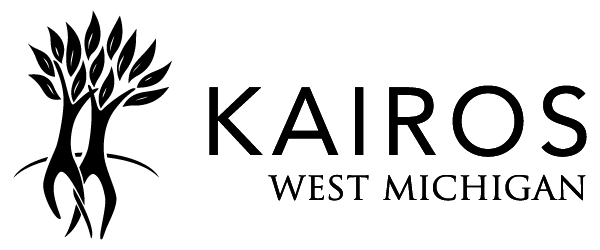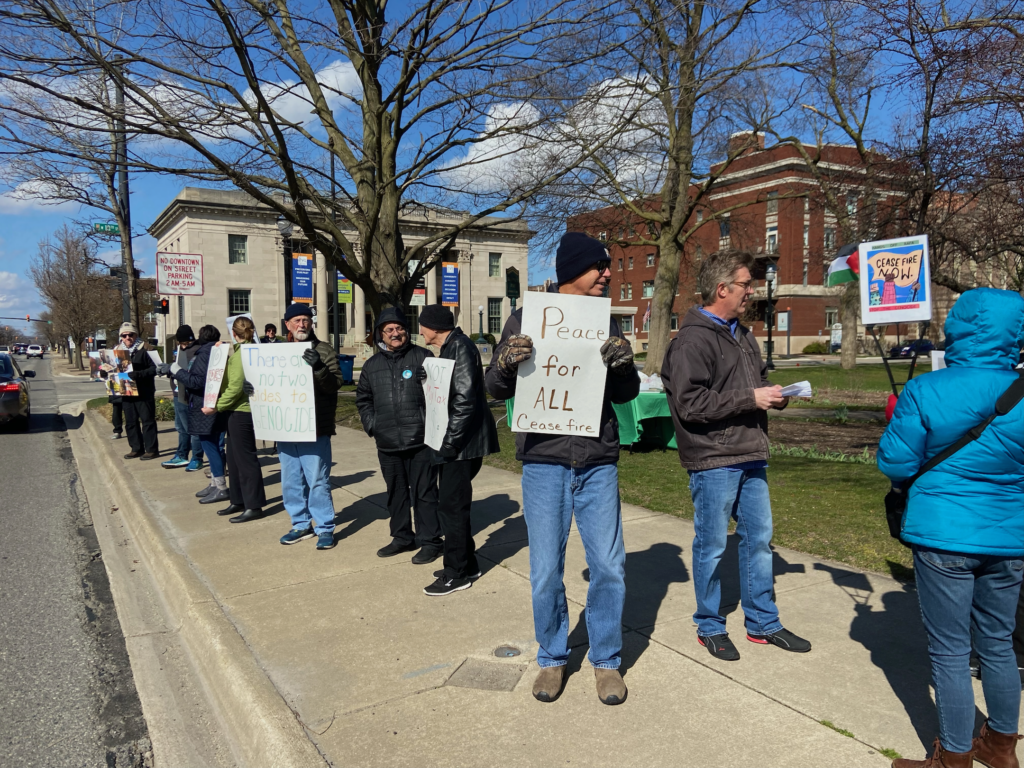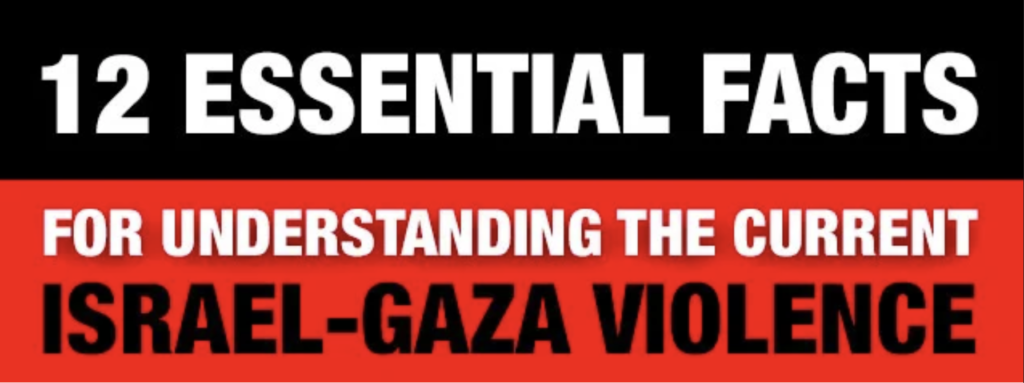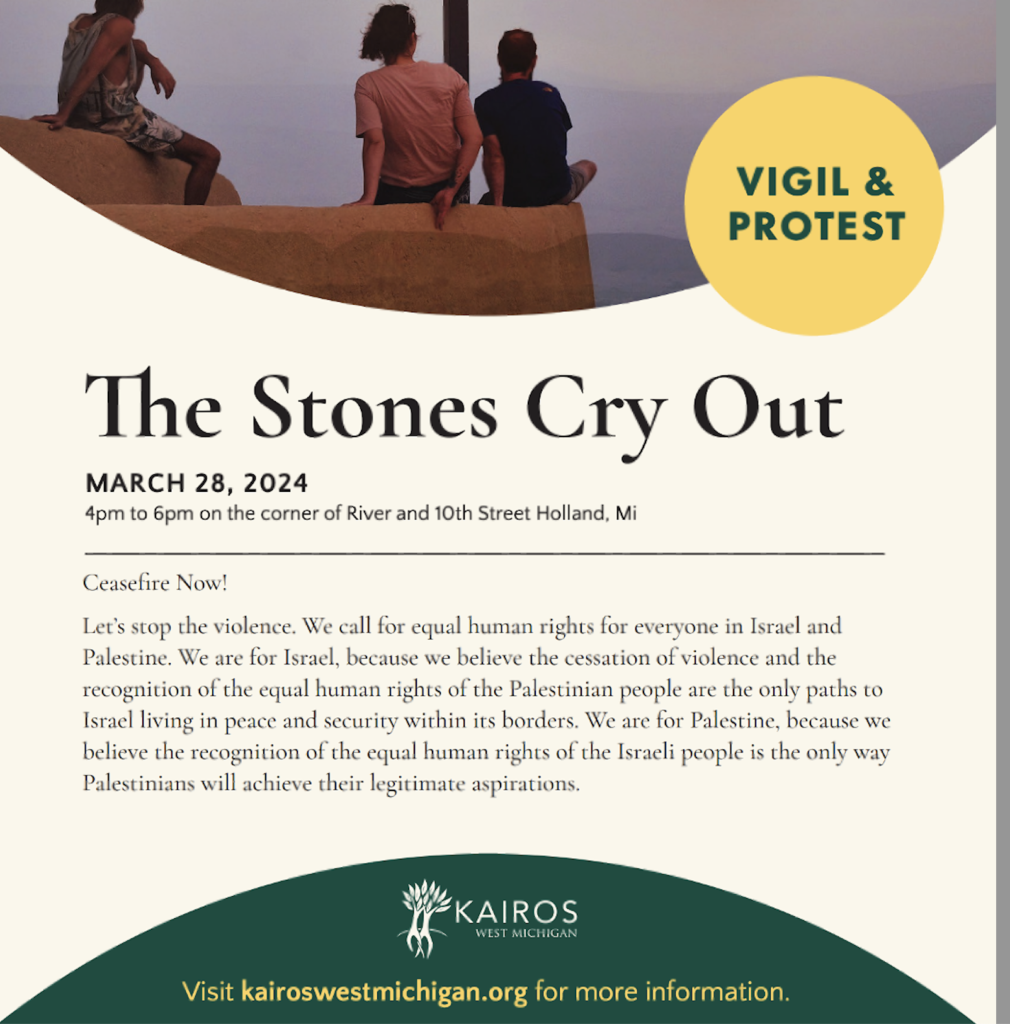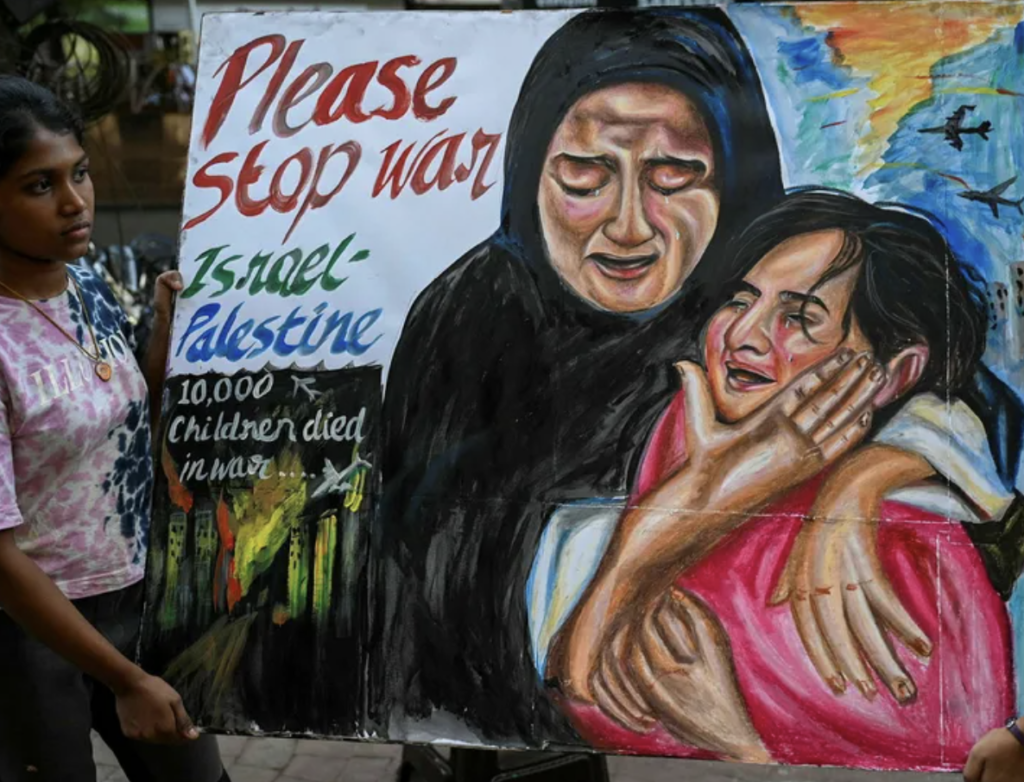
A Passover Reflection
Passover’s Radical Message Is More Vital Than Ever
April 21, 2024, by Rabbi Shai Held. author of “Judaism Is About Love,” from which this essay is adapted.
What do we do with our pain? What, if anything, can we learn from it?
The Bible offers a startling and potentially transformative response: Let your memory teach you empathy and your suffering teach you love.
This week, Jews around the world will mark the beginning of Passover. We’ll gather for Seders, in which we’ll re-enact the foundational story of the Jewish people, the Exodus from Egypt. For Judaism, a religion preoccupied with remembering the past, no memory is more fundamental than the experience of having been slaves to a tyrant and having been redeemed from his murderous clutches by God.
Such a memory, for some, may seem impossible to summon now, in a time of so much trauma and devastation. But it is critical to remember the Exodus precisely at moments of horror and pain because it is the ultimate reminder that the present moment need not be the final stage of history. The status quo, no matter how intransigent, can and must be overturned. Further, we are meant not just to remember our suffering but also to grow in empathy as a result.
The Bible’s emphasis on empathy is particularly poignant in this agonized moment, when Israelis and Palestinians, two utterly traumatized peoples, are so overcome with grief and indignation that they can barely see each other at all. And yet if there is to one day be a different sort of future in the blood-soaked Holy Land, both peoples will need to do precisely that: to hear each other’s stories and histories, to listen to and bear witness to each other’s suffering. The revolution in empathy I am describing is urgently necessary to remember precisely now, when it seems so utterly out of reach.
The recollection of slavery and redemption has important theological and spiritual ramifications. We are meant to live with a sense of gratitude and indebtedness to the God who set us free. We are asked to recall — year after year — that we moved from serving a cruel human master who sought only to humiliate and tear us down to worshiping a loving divine master who blesses us and seeks our well-being. We are called to empathize with those who are exposed and endangered in the present, having ourselves been defenseless in the past.
“You shall not oppress a stranger,” the Book of Exodus teaches, “for you know the feelings of the stranger, having yourselves been strangers in the land of Egypt.” You know what mistreatment feels like, Exodus says, and therefore you should never inflict it upon anyone else.
Leviticus takes this further. “The stranger who resides with you shall be to you as one of your citizens,” it tells us. “You shall love him as yourself, for you were strangers in the land of Egypt.” Leviticus envisions something radical: a society that actively loves and seeks the welfare of its most vulnerable members.
There are longstanding debates in the Jewish tradition about precisely what loving our neighbor entails, but one thing is clear: The love we owe to our neighbor we owe to the stranger among us, too.
There is nothing obvious about this teaching, particularly in a moment when fear and anger threaten to suppress any hint of compassion.
Suffering can teach us love, but all too often we let it teach us apathy and indifference — or, worse, unbridled rage and hostility. Our afflictions harden us, turn our focus stubbornly inward, make our most aggressive impulses seem both necessary and justified. We come to feel entitled: I was oppressed, and no one championed my cause; I don’t owe anything to anyone. But the Bible encourages us to take the opposite tack: I was oppressed, and no one came to my aid; therefore I will never abandon someone vulnerable or in pain.
Many people who have suffered terribly, whether personally or politically, hear both voices in our heads and have both impulses in our hearts. One voice tells us that the pain we have endured (or are enduring) frees us from responsibility to and for others — justifies our fixating on ourselves — while another voice insists that our suffering must teach us to care more and more deeply for others. Through the mandate to love the stranger, the Bible commands us to nurture the latter impulse rather than the former, to let our suffering teach us love.
At a moment like this, the mandate to love the stranger can seem to be speaking to broad and intractable geopolitical conflicts, and in fact, it is, but it also addresses us personally, at the most intimate levels. I know both these voices only too well. Having lost my father as a child and been left alone with a mother who lacked the emotional tools to parent any child, let alone a grieving one, I struggle at times with feeling entitled to ignore other people’s pain and care for just my own. And yet — having experienced aloneness, abandonment and abuse — I also feel an intensified sense of empathy for and responsibility toward those who are alone, abandoned or abused. It is this impulse that the Bible seeks to nurture in me and in each of us.
This week, when we retell the Exodus story, we must remember its implications: Since we know vulnerability, the plight of the vulnerable — whether among our own kin or among those who do not look or pray or speak like us — makes an especially forceful claim on us.
The commandment to do this work is both individual and communal; it is, on the one hand and at various points in the Bible, very much specific to Jews. But on the other hand, it is fundamental to the heritage of human civilization, and thus it addresses every person and every people who hear it. Perhaps, having suffered, you are tempted to learn indifference or even hate. Refuse that temptation. Let your memory teach you empathy and your suffering teach you love.
To tell the story of our past is always also to internalize an ethical injunction for our present and our future: to love the stranger, for we know what it feels like to be a stranger — we know the vulnerability, the anxiety and the loneliness — having ourselves been strangers in the land of Egypt.
NY Times, April 22
